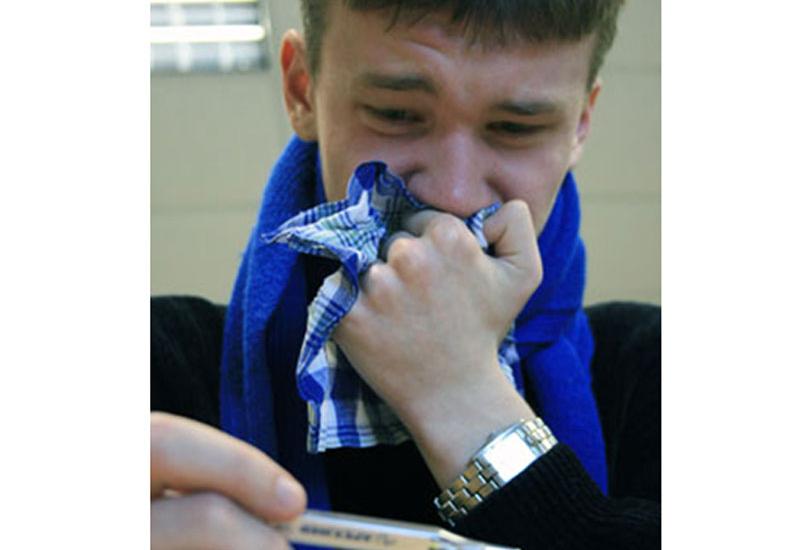With onset of the cold season the amount of ARVI, which takes the first place in structure of contagious diseases, is dramatically increase. Herewith the cases of flu happen in only 12-15%. In the epidemic season in short time period (4-6 weeks) 70-85% of population catches these diseases. Roughly a half of them are children.
The population susceptibility to influenza is very high; largely it depends on the degree of viruses’ change. With the appearance of new virus strain all the population become non-immune. Diseases are spreading like an avalanche, there are arise many cases of severe forms of disease and fatal outcomes.
The source of infection is ill person. The transmission of infection is droplet.The massive spread of influenza is promoted by patients with mild forms of illness, especially those, who careless towards their own heath and towards the risk of infection the other. With drops of mucusfrom the respiratory tractvirus can dissipate in a few meters from the patient,while coughing, sneezing or talking.
Typical symptoms of flu:
- Sharp rise of temperature to 38-40°C.
- Fever
- Weakness
- Pain in muscles, joints, stomach, eyes.
Patient feels difficulty breathing through the nose, scratchy throat, chest compression, painful dry cough.
Flu is highly dangerous with its complications:
- Pulmonary complications (pneumonia, bronchitis). Especially pneumonia causes the most deaths from flu;
- Complications in the upper respiratory tract (otitis, sinusitis,tracheitis);
- Complications in the nervous system(meningitis,encephalitis, neuralgia);
Often flu is accompanied with exacerbation of chronic diseases.
How to secure against the flu?
The main measure of specific prevention is vaccination. The influenza vaccine corresponds to present strain and usually contains antigens at once three viruses’ strains that are selected on the basis of the recommendations of WHO.
Vaccination is particularly recommended for risk groups - children, who often suffer from acute respiratory diseases, the elderly with chronic diseases, teachers, and service workers.
What to do if you have caught the flu?
You should stay at home and stick to bed rest during the period of temperature as influenza disease is a major burden on the cardiovascular system.
Drink more fluids to embroider toxic metabolic products formed during infection. Seek medical advice. Doctor shall appoint necessary treatment based on your medical state and age.
Preventive measures:
- Avoid close contacts with people who cough or sneeze;
- Do not touch eyes, mouth and nose with hands;
- Wearing a gauze bandage or disposable mask;
- Regularly wash hands thoroughly with soap and water, use alcohol disinfectants for hands;
- Make wet cleaning, ventilation and humidifying the air in the room.

